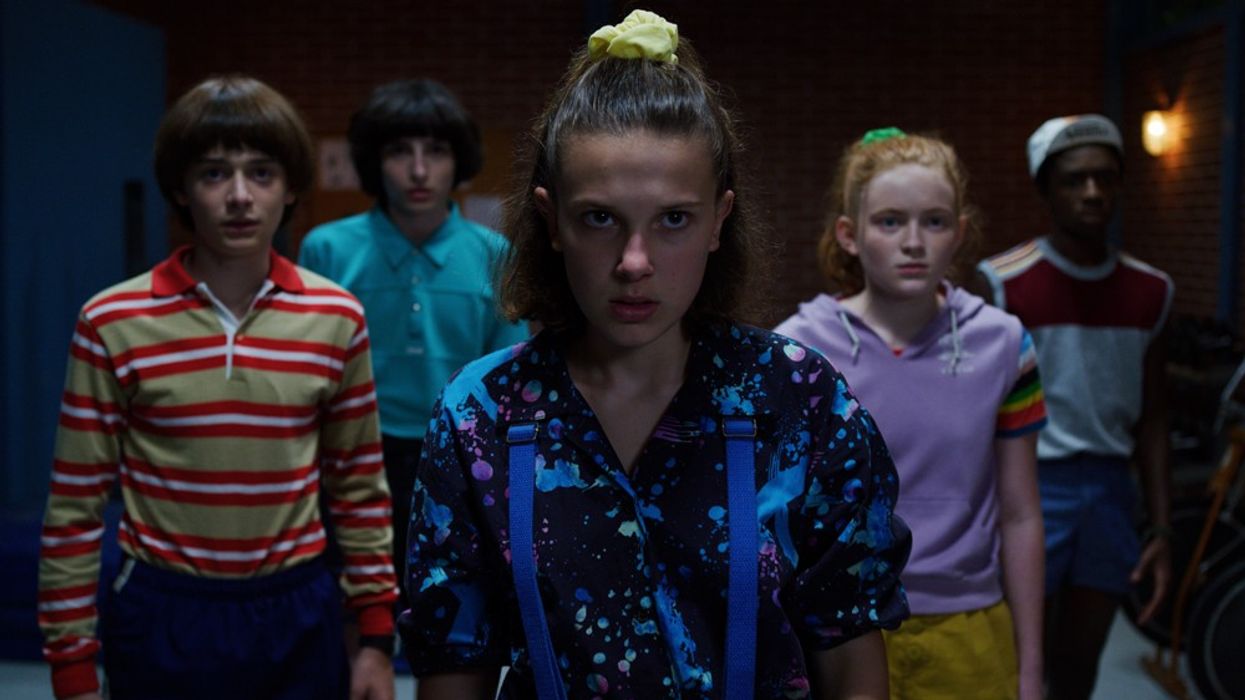3 Things You Need to Know From 'Stranger Things' Cinematographer Lachlan Milne
We recently interviewed Lachlan Milne and asked our community to submit questions. Here a few tips we learned.

Lachlan Milne, ACS, NZCS, is an internationally acclaimed cinematographer who has shot multiple award-winning feature films, television, shorts, and commercials. Recent credits of Lachlan’s include the feature film Love and Monsters (dir. Michael Matthews, 2020), Minari (dir. Lee Isaac Chung, 2020), which scored six Oscar nominations, Hunt for the Wilderpeople (dir. Taika Waititi), as well as the Netflix’s blockbuster series Stranger Things.
You can check out the full video here, then dig into the main takeaways!
Don’t compare your level of success with those around you
In an industry that’s so relatively small and driven by networking, it’s hard to ignore what your colleagues and friends may be doing. Especially with the boom of social media boasting and marketing, pretty much everyone knows what everyone else is doing lately.
Milne says that comparing your level of success with those around you is only going to make you unhappy and that you should do your best not to do this. It becomes a toxic behavior if you’re constantly checking up on what your colleagues may be doing, and feeling down that you’re not doing that commercial or film that they just got on.
Milne says that everybody has their own path and their own version of their careers, with different trajectories and different interests. Some things may happen fast or slow for other people, and you can’t bog yourself down, comparing yourself to how somebody else is doing well and you’re not. He says that he’s also a victim of doing this in the past and that most likely everybody will do this at some point in their career. This kind of comparison is only going to add unnecessary stress to your journey, and you have to just try your best to focus on your own career as much as possible.

Work with the best people
Milne says that the DP and the gaffer’s relationship should be the most collaborative after the DP/director relationship.
He says that you should always strive to hire the best people (especially gaffers) because you can always learn from them, which only makes you better at your job.
He isn’t one of those guys that will tell gaffers exactly which light he’ll use, but allows them to have their own opinion on what might be the best for the job. He’ll explain to the gaffer the concept of what he’s looking for, but not necessarily being prescriptive on what tools to use because they might have a better way to do it. He says that we live in a film making climate that’s changing every week, with new cameras and LED technology that’s evolving so fast, that the chances are there’s a piece of equipment that you might not even be aware of that might do the job better than the idea you had in your head.
Milne says that your key crew are very creative positions, and you have to allow them to contribute as much as possible and make them feel like they are part of the team. A lot of DPs may find themselves instructing the gaffer on exactly what tool to use, but that doesn’t leave room for you to learn and to open up options that might actually be a better idea than yours. He says that you have to be open and try to incorporate them creatively as much as possible.

Be patient and think long-term
When we asked Lachlan what he thought would be one of the most important aspects of being a cinematographer, he said that you really have to be patient and think long-term. This, he says, could be difficult, however, because it’s frustrating sometimes to see other people/colleagues leapfrog you in ways that make you feel like it’s never going to happen. That happened to him as well and likely will happen to all of us at some point, but as he mentioned before, everything happens at different times for people, and you can’t be constantly upset about that.
He mentioned that Tony Scott was 42 years old when he made his first film Top Gun (1986) and started his career much later in life, then later went on to make some unbelievably great and classic films. To be fair, being Ridley Scott’s brother definitely makes it a bit easier, but the point of the example was that you don’t need to be rushing to get to your destination because it’s supposed to take a long time.
Milne says that, ironically, the director is oftentimes the most inexperienced person on set, and that they will very often lean on the cinematographer’s experience to get the film made. This requires the cinematographer to have the answers and to have the experience and knowledge to help the director achieve that vision.
This is where patience and experience come into play, as the longer you’ve been in the game, the more knowledge and experience you can lean on to help the production. He says that there is so much to learn and that you’ll learn something new on every job, and the amount to learn as a cinematographer is infinite. He says that it’s not a marathon, but a slow sprint, and that the longer you’ve been in the game, the better you’ll be if you are constantly learning. If you focus on just that, instead of focusing on if you’re progressing as fast as this other guy or girl, you’ll have a much better career in the long run.
What did you think of this advice? Let us know in the comments!
For more videos about filmmaking, be sure to subscribe to my YouTube channel.











